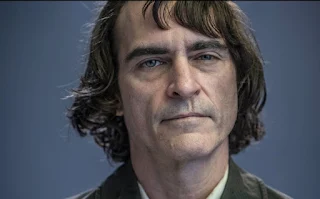So, do you stand up for yourself and risk everything, or do you comply and hope you’re not just setting yourself up for a future where “justice” is as real as a three-dollar bill? It’s the ultimate catch-22, where defending your rights feels like a gamble, and compliance seems like an open invitation to a corrupt sausage party and everyone with a badge RSVP'd.
 For those who have faced the harrowing reality of police misconduct, these questions are more than rhetorical—they're the grim backdrop to daily life. You might have felt that familiar pulse of anxiety when deciding whether to speak up or stay silent, knowing that either choice carries significant risks. How do you reconcile the need for justice with the fear of escalating an already volatile situation?
For those who have faced the harrowing reality of police misconduct, these questions are more than rhetorical—they're the grim backdrop to daily life. You might have felt that familiar pulse of anxiety when deciding whether to speak up or stay silent, knowing that either choice carries significant risks. How do you reconcile the need for justice with the fear of escalating an already volatile situation?
Like the psychological unraveling of Arthur Fleck, you can feel the shift from a marginalized individual to a figure of chaos embodying the extreme consequences of systemic neglect and personal trauma. Descending into the madness of your thoughts--driven by knowing your rights and the violations being carried out against you--offers a dark reflection of what you're capable of when the systems that should protect you instead work to push you further over the edge.
 It's obvious societal pressures and injustices can warp an individual’s mindset, pushing them toward despair and radicalization. And it's used by our justice system as a tool of control. Arthur's story is not just a fictional narrative; it’s a cautionary tale that mirrors the real-life struggles faced by many who feel betrayed by the very institutions meant to safeguard them. The psychological toll of navigating a corrupt system—whether it’s enduring wrongful arrest, grappling with inadequate mental health support, or confronting the indifference of authorities—can drive anyone to the edge. And, when faced with such dilemmas, the edge of madness can seem tantalizingly close. The systemic failures and the crushing weight of feeling powerless against those in authority are designed to push people to the brink.
It's obvious societal pressures and injustices can warp an individual’s mindset, pushing them toward despair and radicalization. And it's used by our justice system as a tool of control. Arthur's story is not just a fictional narrative; it’s a cautionary tale that mirrors the real-life struggles faced by many who feel betrayed by the very institutions meant to safeguard them. The psychological toll of navigating a corrupt system—whether it’s enduring wrongful arrest, grappling with inadequate mental health support, or confronting the indifference of authorities—can drive anyone to the edge. And, when faced with such dilemmas, the edge of madness can seem tantalizingly close. The systemic failures and the crushing weight of feeling powerless against those in authority are designed to push people to the brink.
Comply and endure, or fight and face the unknown. Imagine the deplorable environments in which the justice system often imprisons individuals—places where the lines between punishment and exploitation blur. Incarceration can become a tool not just for confinement but for extortion, where the threat of detainment is wielded to coerce compliance or silence dissent.

Amidst this chaos, laws like the “Stand Your Ground” statutes offer a glimmer of hope. These laws are intended to protect individuals from unjust aggression, allowing them to defend themselves without fear of legal repercussions. Yet, the reality is that invoking such laws can have long-term repercussions, often dragging individuals into a prolonged battle with a justice system that may be more interested in securing convictions than ensuring fair outcomes.
The choice to stand your ground is not just a momentary decision but a weighty gamble with your future. It can set off a chain reaction of legal battles, public scrutiny, and personal upheaval. The prospect of defending your rights might seem like the only path to reclaiming justice, but it’s also fraught with risks that can reverberate far beyond the immediate conflict.
In the end, the decision to stand firm or to comply isn't merely about immediate safety or justice; it's a profound choice about navigating a system that often seems designed to punish those who dare to challenge it. Compliance may offer a semblance of safety and security, but it comes at the cost of surrendering to a system that often exploits those who choose to endure rather than fight. The danger lies in an overreaching, surveillance-driven society that operates on the premise of preemptive control, where individual freedoms are continuously eroded under the guise of security. This crossroads reveals a deeper truth: the very essence of our freedoms is tested in these moments of confrontation, and the real struggle lies in how we balance our principles against a backdrop of systemic resistance. It’s not just a choice between fight and flight—it’s a reflection of whether we will let our ideals be overshadowed by fear or confront the system's failings with the courage to seek true justice.



I am a grandmother who grandchildren where wrongfully took from my care and they are being abused and one of them was sexually molested..
ReplyDeleteThe courts are notorious for protecting child predators. Share your story with us divineamericapress@gmail.com
Delete